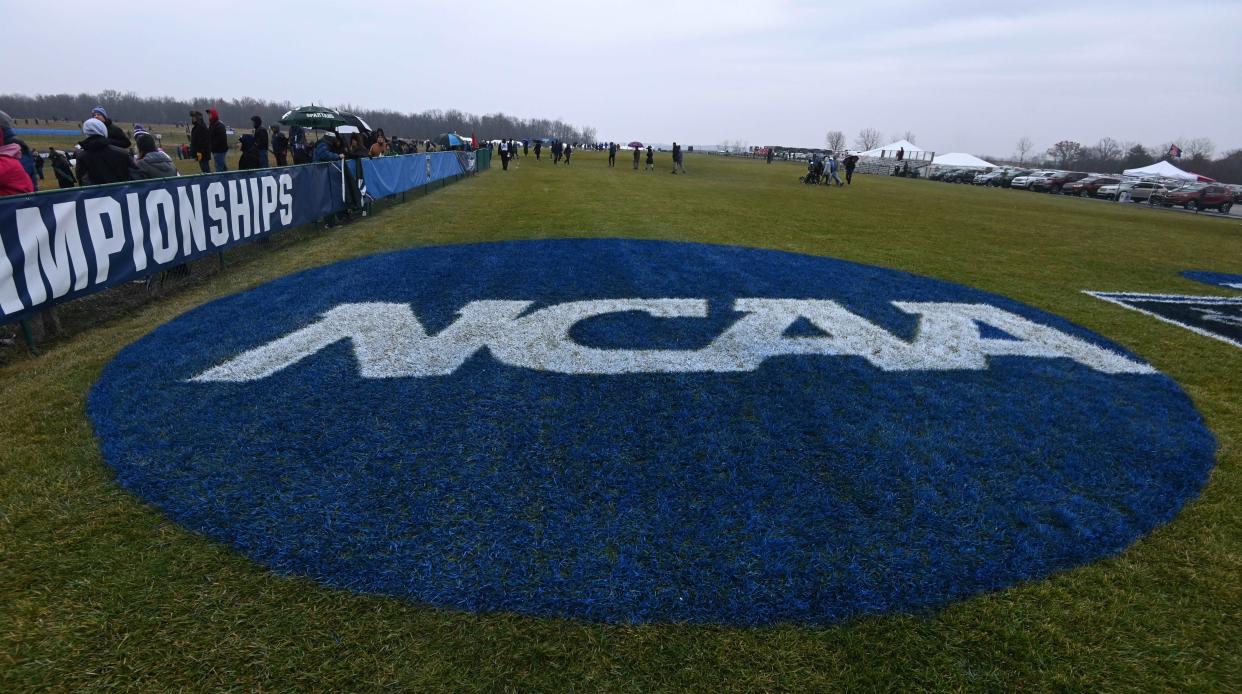California bill mandating college athletes' welfare withdrawn before vote

A bill in the California legislature that would have created wide-ranging changes aimed at mandating and regulating college athletes’ health and welfare was withdrawn by its sponsor Wednesday, the day it was scheduled for a hearing and vote by a state Senate committee.
Because of the legislature’s calendar and legislative deadlines, the action effectively kills the bill for the remainder of a two-year session that finishes at the end of August. In addition, the bill’s sponsor, Assemblyman Chris Holden, D, will reach the state-mandated 12-year limit on lifetime service in the legislature this year.
An even more expansive version of the bill, which included a provision calling for college athletes in the state to receive payments from their schools based on their respective team revenue, schools narrowly passed the Assembly last June. Since then, Holden had dropped a number of elements of that version, including the revenue-sharing component. He announced that adjustment in the wake of the proposed settlement of three college-athlete compensation antitrust suits that would include a $2.8 billion damages pool and give schools the opportunity to pay athletes.
Holden’s chief of staff, Willie Armstrong, did not immediately respond to a request for comment Wednesday evening. Ramogi Huma, the executive director of a California-based national college-athlete advocacy group that had been working with Holden on the bill, said in an interview that Holden withdrew the bill after Senate Education Committee chair Josh Newman, D, recommended that the committee reject the measure.
Newman’s communications director, Brian Wheatley, declined to comment on Newman’s position on the bill. He said any recommendation from Newman “is just that.” The committee members are “free to vote how ever they want,” Wheatley said. Wheatley added that “the decision to pull the bill comes from the author’s office.”
“It was surprising that (Newman) recommended a ‘No’ vote,” Huma said. “We were close, but it wasn’t in the cards today. We’ve had bills die in the past. We’ll keep going at it.”
In 2019, California lawmakers and Gov. Gavin Newsom, D, handed athlete advocates one of their most significant legislative victories when they enacted the first law that allowed college athletes to make money from activities connected to their name, image and likeness. This happened at a time when NCAA rules largely prohibited such activity. And it happened under the threat that schools in California would not be allowed to play in NCAA championships and could have trouble scheduling games.
However, instead of isolating California, the law emboldened other states to pass similar laws, in part for competitive reasons.
The NCAA, which had forcefully and publicly opposed Holden’s bill — beginning well before the Assembly floor vote — said it was pleased by Wednesday’s outcome.
“The NCAA and member schools have been working hard to educate lawmakers in California and across the country about the positive changes taking place at the association to address the needs of modern student-athletes,” NCAA senior vice president of external affairs, Tim Buckley, wrote in a text message. “Those changes combined with the landmark settlement proposal is making clear that state by state legislation would be detrimental to college sports, and that many past legislative proposals will create more challenges than they solve.
“Instead the NCAA and member schools are eager to partner with Congress to use the settlement proposal as a roadmap to address specific challenges to ensure college sports will continue to deliver life-changing educational opportunities for millions of young people for generations to come.”
Holden graduated from San Diego State and played four seasons of basketball at the school. He had argued that his bill's regulatory and enforcement components were necessary, in part, because the NCAA does not sufficiently enforce health and safety policies.
Even in its narrower version, Holden's bill would have made numerous significant changes, including:
►Creating a new, extensive regulatory structure overseen by a 13-member California Athlete Protection Panel appointed by the governor, the Assembly Speaker and the Senate Rules Committee. The Panel would have been required to develop and enforce health and safety standards to prevent "serious sports-related injuries ... sexual harassment and abuse, athlete mistreatment," and it would have had subpoena power. It would have been funded at $6 million a year, to be adjusted for inflation, from fees schools would have had to pay based on their athletics revenue.
"Individuals and entities" that did not comply with Panel penalties or remedies would have subject to prosecution by a district attorney.
►Requiring schools in the state to annually complete an evaluation of their compliance with Title IX in athletics and make it public.
►Preventing schools in the state from upholding any rule that prevented athletes from food, shelter, medical expenses, or medical or disability insurance from any source.
This article originally appeared on USA TODAY: California bill addressing college athletes welfare withdrawn

 Yahoo News
Yahoo News 
